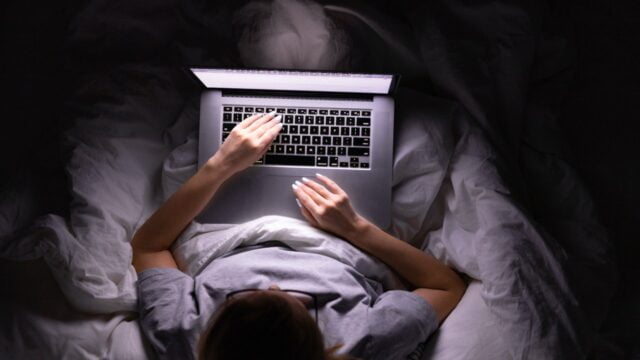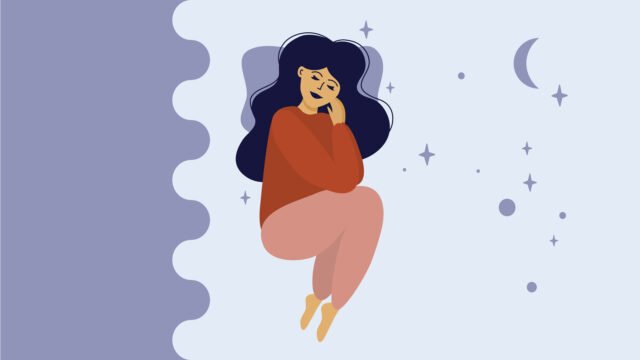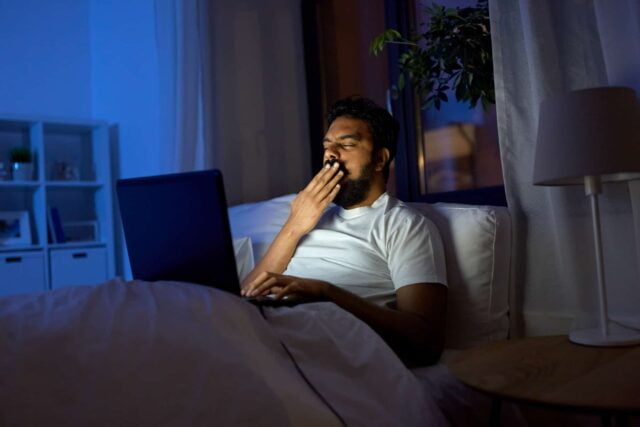Have you ever found yourself craving for some leisure time during your busy schedule, and to compensate, you stay up till the wee hours of the morning to enjoy some me-time?
If yes, unfortunately, you may be a victim of this particular sleep pattern — revenge bedtime procrastination.
What Is Revenge Bedtime Procrastination?
Revenge bedtime procrastination happens when one chooses to sacrifice a good night’s sleep in an effort to relax and entertain oneself after a long and stressful working day.
This sleep pattern is not new but has definitely become the ‘new normal’ of many millennials after the pandemic blurred the lines of a balance between work life and personal space.
According to Dr. Rajkumar Dasgupta, assistant professor at the University of Southern California, “Revenge bedtime procrastination is just a cry from overworked people, and they’re actually trying to put off bedtime just a little bit so they can reclaim something for themselves.”
The issue with revenge bedtime procrastination is that most people are exhausted after a long day. But they choose to stay awake and mindlessly surf on the internet even though they are aware that their mornings will begin at, let’s say, 8:00 A.M on the dot, regardless.
So, while you intuitively know that you need to rest to become productive the next day, you end up sabotaging the one thing that is most likely to give you that boost of energy you need to make it through your long day.
One explanation for this phenomenon is that our self-control is already at its lowest at the end of the day. We often don’t fight the urge to procrastinate when we go to sleep, nor do we regulate ourselves and strictly adhere to a schedule.
Read More: How To Break Your Unusual Sleep Cycle Which COVID-19 Lockdown Has Created
How Does It Affect Your Productivity?
Although it may seem like you are de-stressing and giving yourself a break, revenge bedtime procrastination has far worse consequences than you can imagine. Women and students are the demographic that happens to indulge in this practice the most.
So how does it affect your productivity? The most obvious consequence of this activity is sleep deprivation. Without the required number of hours of rest, your body doesn’t get the chance to recharge after an exhausting day.
Sleep deprivation ultimately affects both your mental and physical health. It reduces your ability to think, your memory power and your ability to make decisions. To add to this, it also results in daytime sleepiness, which ultimately affects your productivity during the day.
You are also more likely to become irritable and have lesser control over your emotions. Physically as well, revenge bedtime procrastination has its side effects. It can make you more susceptible to cardiovascular problems, metabolic diseases and reduce your immunity!
It should not come as a surprise then that individuals are likely to suffer tremendously in school or at their workplaces by inculcating this habit.
Fear not because there are simple ways you can create a more sleep-inducing environment for yourself. You should ensure that your room is quiet and dark, and sleeping can become more appealing if you have a comfortable mattress.
Engaging in meditation or doing a couple of simple stretches is a great way to calm down and prepare yourself for bedtime. Make it a practice to not bring your electronics to bed and keep to a strict night routine that you follow each day.
So readers, remember that relaxation doesn’t have to mean scrolling through your phone all night or binging several episodes of a TV show all at once, especially when your health and well-being are at stake!
Image Credits: Google Images
Sources: CNN, Glamour, BBC
Find the Blogger: @MalavikaMenon28
This post is tagged under: sleep deprivation, sleep, what is revenge bedtime procrastination, how to prevent revenge bedtime procrastination, leisure time, relaxation techniques, what are the consequences of irregular sleep, millennial sleep patterns, work productivity, how sleep deprivation affects work, work-life balance, relaxation, millennial lifestyle, sleep cycle during the pandemic, how to create a sleep-inducing environment, unhealthy sleep patterns, meditation, health hazards, mental health issues, what are the repercussions of irregular sleep







































